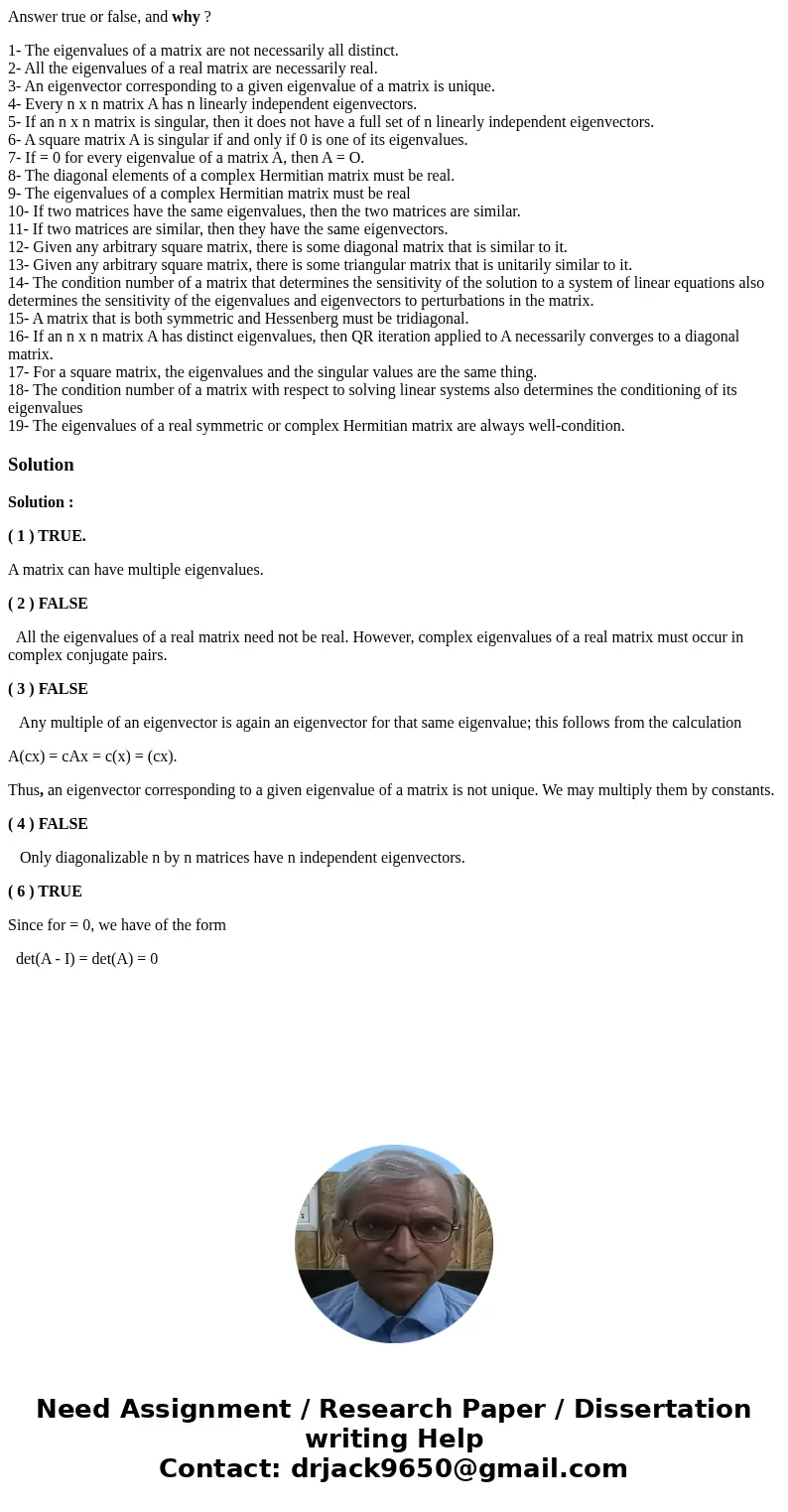Answer true or false and why 1 The eigenvalues of a matrix
Answer true or false, and why ?
1- The eigenvalues of a matrix are not necessarily all distinct.
2- All the eigenvalues of a real matrix are necessarily real.
3- An eigenvector corresponding to a given eigenvalue of a matrix is unique.
4- Every n x n matrix A has n linearly independent eigenvectors.
5- If an n x n matrix is singular, then it does not have a full set of n linearly independent eigenvectors.
6- A square matrix A is singular if and only if 0 is one of its eigenvalues.
7- If = 0 for every eigenvalue of a matrix A, then A = O.
8- The diagonal elements of a complex Hermitian matrix must be real.
9- The eigenvalues of a complex Hermitian matrix must be real
10- If two matrices have the same eigenvalues, then the two matrices are similar.
11- If two matrices are similar, then they have the same eigenvectors.
12- Given any arbitrary square matrix, there is some diagonal matrix that is similar to it.
13- Given any arbitrary square matrix, there is some triangular matrix that is unitarily similar to it.
14- The condition number of a matrix that determines the sensitivity of the solution to a system of linear equations also determines the sensitivity of the eigenvalues and eigenvectors to perturbations in the matrix.
15- A matrix that is both symmetric and Hessenberg must be tridiagonal.
16- If an n x n matrix A has distinct eigenvalues, then QR iteration applied to A necessarily converges to a diagonal matrix.
17- For a square matrix, the eigenvalues and the singular values are the same thing.
18- The condition number of a matrix with respect to solving linear systems also determines the conditioning of its eigenvalues
19- The eigenvalues of a real symmetric or complex Hermitian matrix are always well-condition.
Solution
Solution :
( 1 ) TRUE.
A matrix can have multiple eigenvalues.
( 2 ) FALSE
All the eigenvalues of a real matrix need not be real. However, complex eigenvalues of a real matrix must occur in complex conjugate pairs.
( 3 ) FALSE
Any multiple of an eigenvector is again an eigenvector for that same eigenvalue; this follows from the calculation
A(cx) = cAx = c(x) = (cx).
Thus, an eigenvector corresponding to a given eigenvalue of a matrix is not unique. We may multiply them by constants.
( 4 ) FALSE
Only diagonalizable n by n matrices have n independent eigenvectors.
( 6 ) TRUE
Since for = 0, we have of the form
det(A - I) = det(A) = 0

 Homework Sourse
Homework Sourse